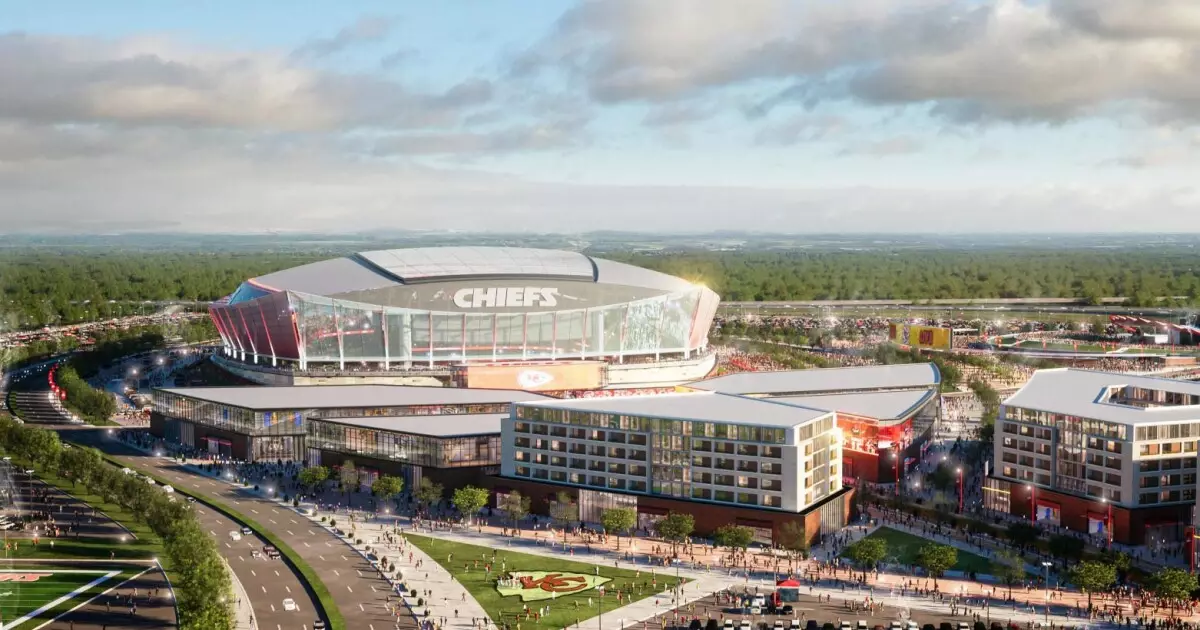5 Stark Realities Behind Kansas’ Desperate Bid to Woo Pro Sports Teams

Kansas lawmakers are once again attempting to stretch the deadline on a bond financing program designed to poach the Kansas City Chiefs and Royals from their longtime Missouri home. This move is less about fan loyalty and more about economic brinkmanship. State officials are dangling the promise of a $1 billion sports complex—complete with a domed stadium and sprawling entertainment district—in hopes of tipping the scales. Yet this comes at a time when the financial structure of the plan raises serious questions about the long-term benefits for Kansas taxpayers versus the disproportionate risks they face.
The Illusion of a Win-Win Sports Deal
At first glance, bonding 70% of the stadium project’s cost through sales tax increments and liquor revenues seems like a smart financing tool, especially with state backing stretching to 30 years. Proponents tout that sports venues can catalyze urban development and catalyze tourism. However, history and numerous economic studies suggest these grandiose promises often fall flat. Stadium finance schemes frequently handcuff local governments to debt and inflated maintenance costs, while revenue growth tends to cluster narrowly around establishments benefiting directly from games. Politically, Kansas seems obsessed with creating an appearance of modernity and competitiveness at the expense of prudent budgeting.
The Missouri Counterpunch: A Wake-Up Call for Kansas
Missouri’s swift legislative action to retain their franchises confirms this is a turf war fueled by regional rivalry, not a mutually beneficial economic strategy. Instead of reassuring Kansas citizens, Missouri’s rival bonding programs amplify the risk of a race to the bottom, where states discard fiscal discipline to outbid one another for professional sports teams. Kansas must recognize that throwing money at franchises rarely translates into sustainable growth or substantial public good. Moreover, as professional sports leagues become more lucrative, team owners leverage their monopolistic power—forcing cities and states into costly bidding wars that favor owners over taxpayers.
Political Calculus Over Public Interest
Kansas Senate President Ty Masterson’s language—“We’re in the red zone” and “to ensure the ball crosses the goal line”—reveals the metaphorical and literal sportsmanship underpinning these legislative maneuvers. The legislative coordinating council’s power to extend deadlines based on lobbying from NFL interests exemplifies the cozy relationship between government and sports franchises. It’s a stark reminder that political actors, irrespective of party affiliation, often place symbolic victories and political capital ahead of rigorous cost-benefit analyses. This undermines conservative principles centered on limiting government debt and protecting taxpayers from nebulous investment schemes that escape accountability.
The Broader Risk of Subsidizing Pro Sports in an Age of Fiscal Prudence
In a political environment where prudent fiscal management should be paramount, Kansas is veering toward a high-stakes gamble with taxpayer-backed debt on a nebulous promise of local economic uplift. The expansion of STAR bonds to cover more costs and extend repayment periods only magnifies the potential for financial overreach. As a center-right advocate of limited government and responsible public spending, the knee-jerk rush to subsidize elite sports franchises must be resisted—not because these teams aren’t valuable civic symbols, but because public funds should prioritize real, measurable community needs over expensive status symbols. The enduring lesson is clear: Kansas risks conceding its fiscal integrity in a costly attempt to revive regional pride through stadiums that are, more often than not, monuments of political hubris rather than economic progress.





